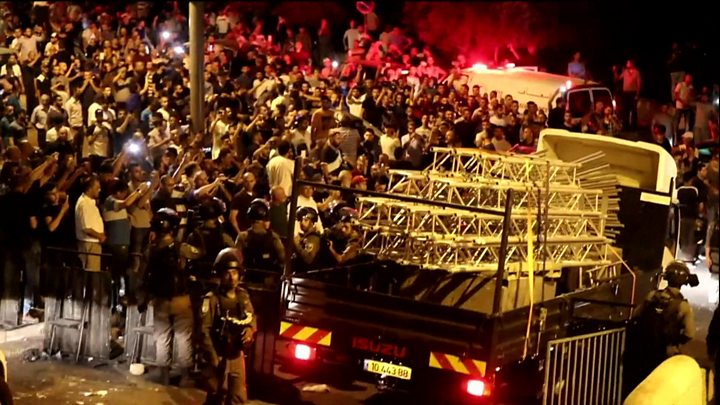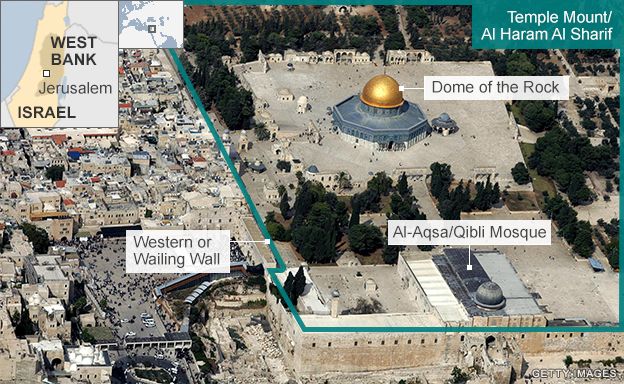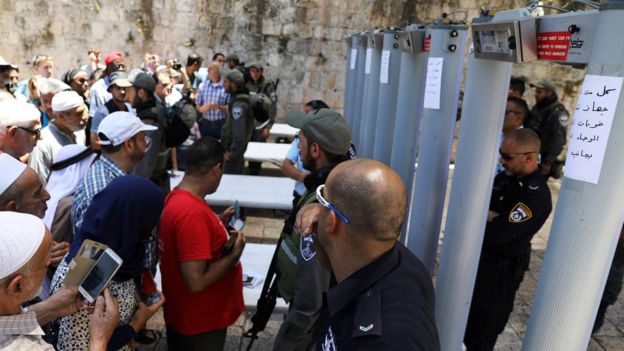
Muslim leaders have lifted a boycott of a key holy site in East Jerusalem after Israel removed the last of the security measures which had led to uproar.
They urged Palestinians to re-enter the compound on Thursday for the first time since the crisis erupted two weeks ago.
The last remnants of Israel's recently installed security apparatus were taken away on Thursday morning.
Palestinians had fiercely objected to the measures introduced after the killing of two Israeli policemen.
They had refrained from entering the Old City complex known to Muslims as Haram al-Sharif and to Jews as the Temple Mount in protest over what they saw as an Israeli attempt to exert control over the contested site.

Last week Palestinian Authority President Mahmoud Abbas said he was freezing all contacts with Israel, including security co-operation, until Israel cancelled the new measures.
There have been intensive diplomatic efforts to resolve the crisis, involving the US and Jordan, which is custodian of the holy site and has a large Palestinian population.
The Israeli government has not yet commented on its decision to completely dismantle the infrastructure. Observers say it is a climbdown by Prime Minister Netanyahu which will put him at odds with more right-wing members of his cabinet.
In a separate development, Mr Netanyahu accused the Qatar-funded pan-Arab al-Jazeera TV channel of fuelling the crisis.
"The al-Jazeera network continues to stir violence around the Temple Mount," he posted in Hebrew on his Facebook page, vowing to "enact the required legislation to expel al-Jazeera from Israel".
Palestinians jubilant
Palestinians sang, danced and let off fireworks as railings and security camera gantries were removed from the Lions' Gate entrance near the Temple Mount/Haram al-Sharif in the early hours of Thursday morning.
"For 12 days no-one has slept, no-one has done anything except the al-Aqsa mosque," bystander Firas Abasi told AFP news agency.
He said he felt like crying over what he called a "victory".
 REUTERS
REUTERS
Mass prayer gatherings had been held in the street outside the Old City walls and near-daily clashes between Israeli security forces and demonstrators have taken place since the metal detectors were introduced in the wake of the killings of the policemen near the site on 14 July.
Four Palestinians were killed and three Israeli civilians stabbed to death by a Palestinian who said he was avenging Israel actions at the site.
Israel said the security measures were necessary because the weapons used to kill the police had been smuggled on to the compound.
Earlier this week, it said it would bolster its police presence around the site and introduce less obtrusive security measures over the next six months, including unspecified "advanced technologies".

No comments:
Post a Comment